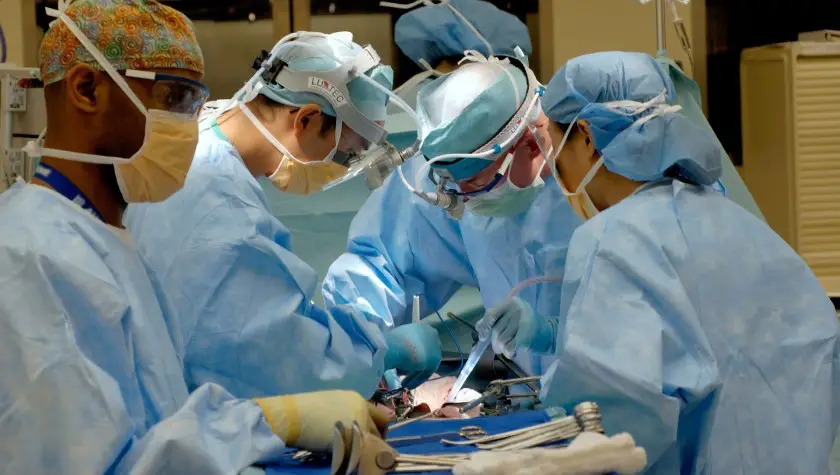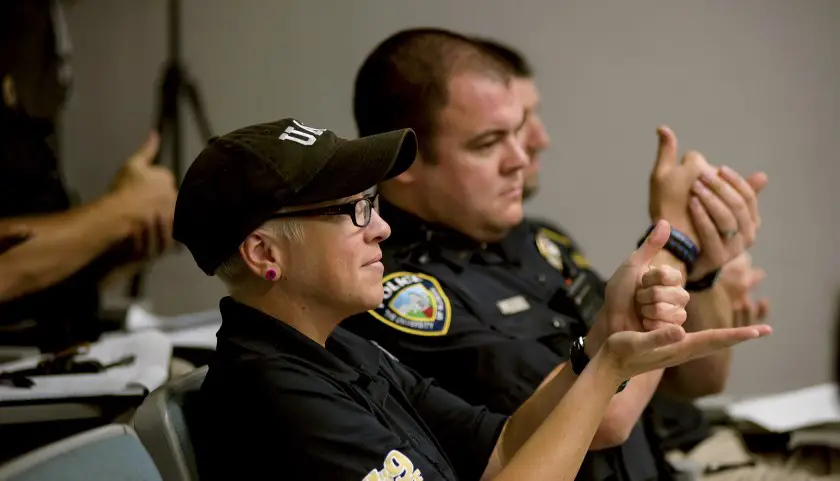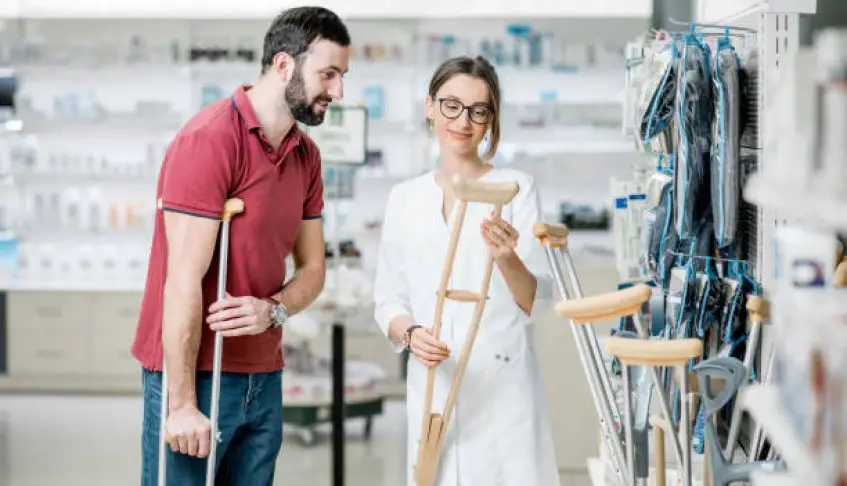The medical profession is a delicate and prestigious one.
It houses many fields like podiatry, gynecology, chiropractics, and psychiatry.
Doctors are certified professionals who are responsible for diagnosing and treating patients with diverse ailments.
As a result of this, they’re expected to be fit and sound in all ramifications since they’ll be dealing with saving human lives.
However, this does not rule out the fact that doctors suffer from disabilities.
They are humans too and are likely to become sick at some point or suffer from a physical impairment.
But there are cases where certain types of disabilities like blindness and deaf-blindness can make it seem impossible for a person to become a doctor.
In addition, it’s very rare to find blind people who practice medicine. But does that mean a blind person can’t be a doctor?
What are the odds and feasibility available for a person with visual impairment to successfully practice medicine?
These are the questions I’ll be proffering answers to as you read on.
Table of Contents
- Who Is a Medical Doctor?
- Requirements for Being a Doctor
- Areas of Specialization in Medicine
- Can a Blind Person Become a Doctor?
- 3 Real-Life Examples of Blind Doctors
Who Is a Medical Doctor?
A doctor is a certified medical professional who is responsible for maintaining and restoring both the physical and mental health of patients.
They help patients to get better by interacting with them and diagnosing any medical problem that such patients might be suffering from.
After diagnosis, they help to treat the patients successfully and ensure that they recover from their illnesses or injuries.
Related: Can You Be a Pilot If You Are Color Blind? (Answered)
Requirements for Being a Doctor
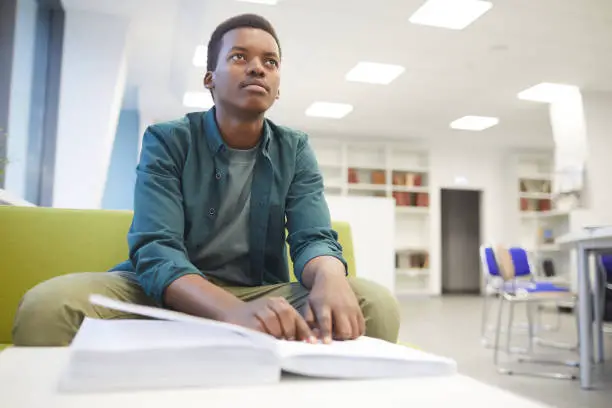
Becoming a doctor comes with a lot of time, dedication, and hard work.
Since medicine is a very extensive discipline, it can take you about an average of 8 years to complete your study to become a certified doctor.
Below are the requirements needed to become a doctor.
- Earn a bachelor’s degree in medicine from a standard college or University
- Take Medical College Admissions Test (MCAT) to access your eligibility for being admitted into medical school
- Apply for a medical school degree and get certified by the American Osteopathic Association Commission on Osteopathic Accreditation or the Liaison Committee on Medical Education
- Complete your one-year internship after which you’ll start your residency program. You’ll have to work for 2 to 5 years in your area of specialization in medicine
- Write and pass the state medical licensing exams and become a full-fledged doctor
Roles and Responsibilities of Doctors
Below are some of the duties a doctor performs.
- Treating patients after gathering enough information about their symptoms
- Reading and making a clear interpretation of laboratory results
- Prescribing drugs to patients
- Performing surgeries when the need arises
- Working hand-in-hand with other medical professionals to ensure that patients receive the best medical attention
Areas of Specialization in Medicine
Medicine is broad and has various specializations that a potential doctor can specialize in.
Your specialization as a doctor often depends on the area of interest in medicine that you’re most passionate about.
Some of these areas of specialization include:
- Nephrology
- Orthodontics
- Psychiatry/Psychology
- Ophthalmology
- OB/GYN (obstetrics/gynecology)
- Urology
- Otolaryngology (ENT, or ear, nose, and throat)
- Dermatology
- Oncology
- Radiology
- Pediatric
- Chiropractics
Related: Can I Do DoorDash While On Disability? (Answered)
Can a Blind Person Become a Doctor?
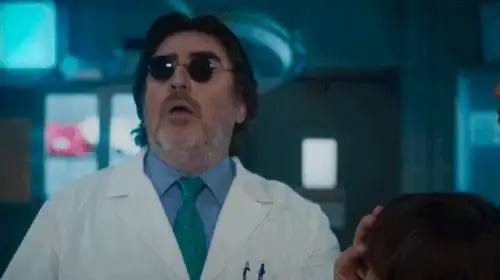
Yes, a blind person can become a doctor.
Once you’re determined to fulfill all the criteria that can make you become a doctor and eligible to practice (as discussed above), then you’re good to go.
However, you’ll have to work twice as hard as a seeing person to achieve this feat.
In addition, the severity of your blindness may not enable you to become eligible to practice in some specialized areas of medicine that rely on eyesight.
Specializations like Psychiatry/Psychology and chiropractic are the best for visually impaired people since they deal more with physical touch.
If the school you apply to study accepts you to study medicine, there is nothing that can hold you back from achieving your dreams.
3 Real-Life Examples of Blind Doctors
Below are real-life examples of blind people who defied all odds to become medical doctors.
Example 1: David Hartman
David Hartman is a medical doctor who became blind from glaucoma when he was 8 years old.
He always dreamt of studying medicine while he was growing up.
However, the college he applied to always discouraged him from pursuing a career in medicine due to his disabilities.
But Hartman never relented in his pursuit to become a medical doctor.
After being admitted to college to study medicine, Hartman took up the task to have 25 medical textbooks recorded in audio format to enable him to study effectively.
He ensured that he painstakingly paid close attention to every sentence in the recorded text whenever he studied.
Eventually, He became the first blind student to complete medical school and graduated in 1976 when he was 27 years old.
At the age of 72, he was already a Psychiatry Specialist with over 46 years of experience in the medical field.
Related: How to Work With a Person Who Is Deaf or Hearing Impaired
Example 2: Tim Cordes
This is another blind American doctor who became the second blind person to be accepted into medical school.
He has been blind since infancy due to Leber’s hereditary optic neuropathy that he suffered.
His blindness, however, did not debar him from earning his degree in medicine as he graduated in 2005.
He presently practices medicine and does an excellent job of using his hands to diagnose patients. He even does a good job of discovering symptoms, just like David Hartman.
Example 3: Alexandra Adams
Alexandra was born completely deaf and has just 5% eyesight. She faced a lot of bullying and discrimination as an aspiring doctor with a disability.
In an interview, Alexandra had this to say about her disability, “… I have less eyesight, but I have more insight. And actually, I think it’s that insight and (that) human-to-human interaction that’s important when you’re dealing with patients”.
Despite her health condition and discrimination, Alexander did not stop pursuing her career in medicine.
